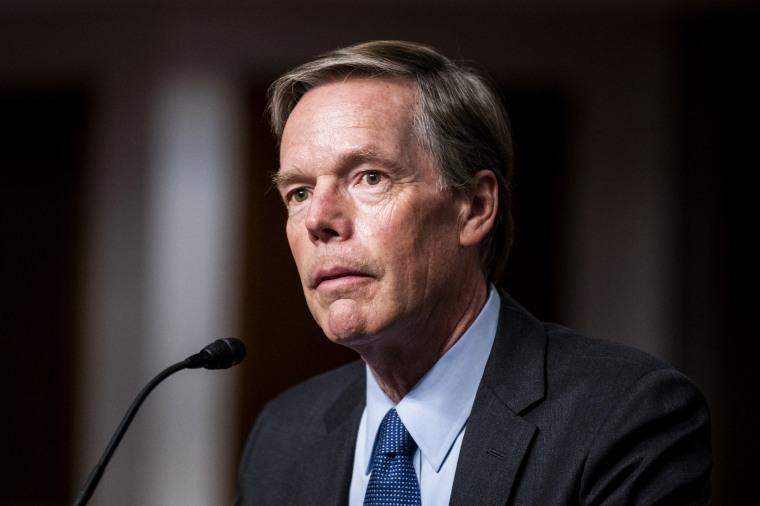The United States is ready to hold high-level talks with China and wants to forge better communication channels between the two countries, the U.S. ambassador to China said Tuesday.
The U.S. relationship with China remains “complicated” and competitive, but Washington does not seek conflict with Beijing and believed more dialogue would be constructive, said U.S. Ambassador Nicholas Burns.
“Our view is we need better channels between the two governments and deeper channels, and we are ready to talk,” said Burns, speaking virtually at an event organized by the Stimson Center, a think tank in Washington.

“And it’s particularly important to do that, of course, when you’ve got big problems and when you have major disagreements in the relationship. We’ve never been shy of talking, and we hope the Chinese will meet us halfway on this,” Burns said.
The ambassador’s comments are the clearest signal yet that the Biden administration is keen to restore a broader dialogue with China amid tensions over Taiwan, trade and a Chinese balloon that entered U.S. airspace.
Diplomatic channels between China and the U.S. have withered over two successive administrations, with Beijing so far unwilling to say when top U.S. officials from the Biden administration will be welcome for high-level meetings.
Western officials and former U.S. diplomats say China’s neighbors and U.S. allies worry the breakdown in communication between the world’s superpowers could derail the global economy or lead to an accidental clash.
Secretary of State Antony Blinken was scheduled to visit China in February but canceled his trip after the Chinese balloon, which U.S. officials said was designed to eavesdrop over American territory, traversed the U.S. before it was shot down by a U.S. fighter jet off South Carolina.
China has said that the balloon was for meteorological research and that the U.S. is responsible for tensions. The Chinese embassy in Washington did not immediately respond to a request for comment.
Burns said he could not predict when China and the U.S. would agree on rescheduling Blinken’s visit or on talks between other U.S. cabinet officials and their Chinese counterparts.
“What we really need is a more broad-based engagement at the Cabinet level, and the United States is ready for that,” Burns said. “So we hope that the government here will be ready as well. And it’s hard for me to predict at this point when this kind of re-engagement will reoccur, but we have never supported an icing of this relationship.”
Discussions between U.S. climate envoy John Kerry and his Chinese counterpart have resumed, but other communication channels remain dormant, including possible talks on the role of Chinese black market firms shipping precursor chemicals for fentanyl into the United States, Burns said.
“We have not had a productive exchange on the fentanyl issue,” he said.
Burns, who has held senior positions at the State Department, said China’s strict “zero Covid” policies over three years also hampered official and informal contacts between U.S and Chinese executives, lawmakers and academics.
Now that the quarantine restrictions have been lifted, Burns said he hoped those informal meetings and exchanges would resume to previous levels.
“We didn’t see a single CEO of a major company here until just six weeks ago. And we didn’t see and haven’t seen members of Congress travel here because of the onerous restrictions under zero Covid,” the ambassador said.
He said there are about 295,000 Chinese students studying in the U.S., but only 350 American students in China.
“We’ve had a decoupling of our societies over the last three years," Burns said. "It’s not healthy. It’s not smart."
Burns was not able to formally present his credentials as ambassador until last month, because of the Covid restrictions.
